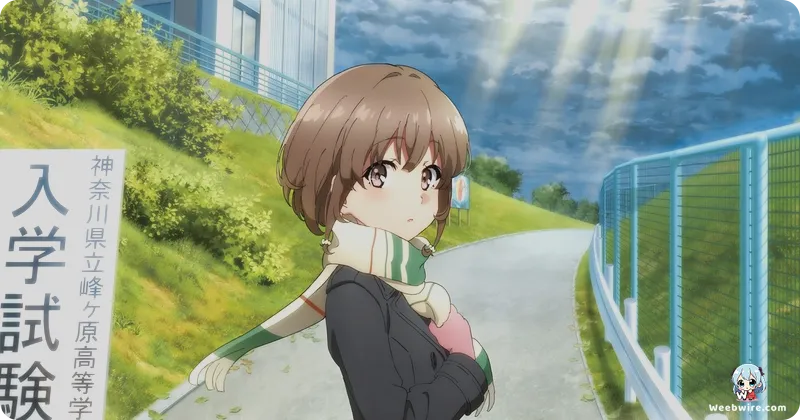Rascal Does Not Dream of a Sister Venturing Out: A Poignant Journey into Identity, Trauma, and Unbreakable Family Bonds

The acclaimed 'Rascal Does Not Dream' series continues its profound exploration of supernatural phenomena and deeply relatable character struggles in its latest cinematic installment, 'Rascal Does Not Dream of a Sister Venturing Out'. This film decisively shifts its spotlight onto the intricate journey of Kaede Azusagawa, Sakuta's younger sister, offering a poignant and insightful look into themes of identity, trauma, and the unwavering power of familial love. Far from a mere continuation, it provides a crucial, multi-layered examination that will resonate deeply with fans.
Picking up after the events of 'Rascal Does Not Dream of a Dreaming Girl', the narrative centers on Kaede, who battles a severe manifestation of Adolescence Syndrome—amnesia and the emergence of a distinct 'new Kaede' personality. The core plot revolves around 'new Kaede's courageous decision to re-integrate into society by attending school, confronting the anxieties that triggered her syndrome. This brave endeavor, however, leads to unforeseen complications as her suppressed memories begin to resurface, threatening to erase the 'new Kaede' that Sakuta and the audience have come to cherish. The film masterfully navigates this delicate interplay, exploring the profound implications of identity, memory, and the arduous process of healing.

A defining characteristic of the 'Rascal Does Not Dream' universe, significantly amplified in 'Sister Venturing Out', is the metaphorical depth of Adolescence Syndrome. While presented supernaturally, each manifestation ingeniously dissects real-world psychological issues. In Kaede's case, her syndrome powerfully symbolizes severe social anxiety, trauma-induced amnesia, and a dissociative identity-like state. The 'new Kaede' personality materialized as a vital coping mechanism, shielding her from painful recollections and overwhelming social pressures. The film meticulously unravels this metaphor, illustrating how her physical ailments and memory loss are intricately interwoven with her emotional scars, making her struggle profoundly relatable.
The dual portrayal of Kaedes is a highlight, showcasing remarkable depth in character writing and voice acting. Yurika Kubo delivers an extraordinary performance, expertly distinguishing between the timid 'new Kaede' and the more assertive, memory-laden 'old Kaede', making their internal conflict palpable. Sakuta Azusagawa's unwavering devotion to his sister forms the bedrock of his character, with this film acting as a powerful testament to their profound sibling bond. His pragmatic yet deeply caring nature, coupled with his selflessness, establishes him as an exceptional protagonist, focused on providing unconditional emotional support through Kaede's complex re-integration.
CloverWorks, the animation studio, merits significant praise for its consistent high-quality animation, impeccably supporting Hajime Kamoshida's nuanced storytelling. The studio maintains the distinctive visual style and atmospheric tone, with detailed animation for Kaede's emotional expressions, enhancing the narrative's resonance. The title itself, 'Rascal Does Not Dream of a Sister Venturing Out', encapsulates the film's core themes of self-acceptance, growth, and the courage to embrace an uncertain future, highlighting Kaede's transformative journey from isolation to self-discovery. This film is a powerful, deeply moving entry in the 'Rascal Does Not Dream' universe, exploring finding one's place, surmounting trauma, and the enduring strength of family bonds.
Credits
Rascal Does Not Dream of a Sister Venturing Out
Author
Hajime Kamoshida
Cover Art
Keji Mizoguchi
Studio
CloverWorks
Publisher
ASCII Media Works
Producers





